The regional purchasing is your opportunity to consume healthily and sustainably over the long term. Nowadays, a lot of food is produced in distant countries using a lot of energy, water and pesticides and exported to Germany. But tomatoes also grow locally in our country. However, since regional tomatoes and globally produced tomatoes hardly differ visually, the cheaper price is often in the foreground for us consumers. However, by consuming regional products, each of us has the opportunity to make our Make everyday life much more sustainable while also promoting his health as well as his environment.
In this article I would like to explain to you what regional shopping means, which advantages and disadvantages as well as consequences it brings with it and how regional consumption can be easily implemented in everyday life. Let's go!
Tip: I have given you separately another article about seasonal shopping written, in case you miss this aspect a bit here.
What does shopping regionally mean?
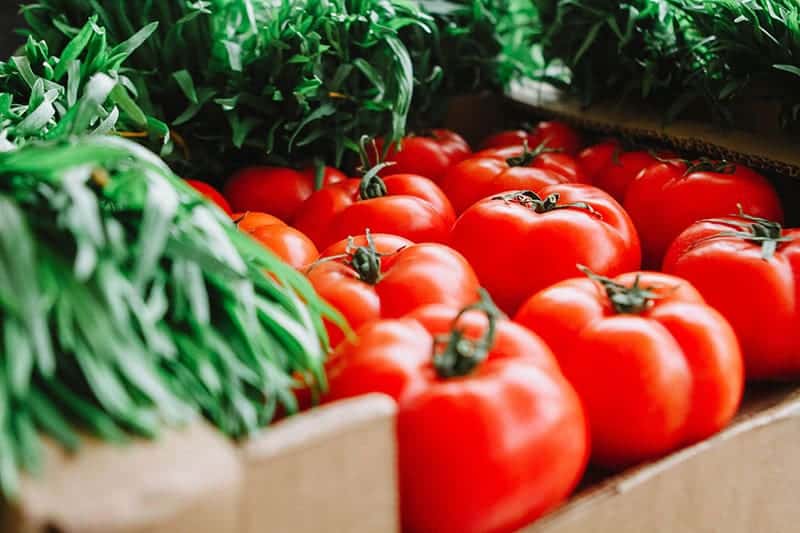
Basically, a regional purchase refers to the Purchase of goods that are produced and also consumed in the same region.
Genuine regionality refers to the entire value chain and not just individual intermediate steps. However, the term "region" is not legally protected, which is why many manufacturers simply use a broader definition and print it on their product labels. For me personally, for example, food is considered regional if it is produced within a radius of no more than 50 kilometers. So products from Germany are not automatically regional - the focus is more on the exact region within Germany where it was produced.
Difference from a local purchase
Regional does not mean local. Admittedly, I assumed that for a long time. But in fact regional purchasing always refers to a large-scale areain which the respective goods were produced. The term locality, on the other hand, is a bit more precise and refers to a smaller geographical area - such as a specific city in a region.
However, since everyone has a different starting point for evaluating regionality or locality, opinions also differ somewhat accordingly. Whether local or regional - both ways of shopping ultimately bring very similar advantages.
Advantages & disadvantages of regional consumption
First of all, I want to show you what can be done against and what speaks for the consumption of regional products. After all, there must be reasons why some pay particular attention to it and others still tend to resist it.
Disadvantages of regional purchasing
It is not so easy to find real problems here. Even if the disadvantages of consuming products from your region are limited, of course I don't want to deprive you of them:
- One-time time commitment: The responsibility of regional purchasing is in the hands of the consumer. In the beginning, it takes a little research to learn to consume regionally on a permanent basis. But with this article, you're already well on your way 🙂 .
- Higher costs: Often, regional products are somewhat more expensive. This is due, for example, to the ecological production method, but also because the products do not come from industrial mass production. Joint, regular orders from farms offer a good opportunity here save money sustainably.
Advantages of regional purchasing
It may be a bit of a hassle for some to really go regional all the time - but it doesn't always have to be. But the following advantages will motivate you even more:
- Suppliers pay special attention to quality: Regional producers are under economic pressure to produce high quality. After all, those who offer inferior products fall into disrepute regionally and may have to accept enormous losses in sales.
- Environmentally friendly production: For regional food, significantly fewer greenhouse gases are blown into the atmosphere during production (e.g. in heated greenhouses). Water consumption is also generally lower and there is also no need to cut down forests for one's own food.
- Shorter transport distances: Many foods are transported to Germany by ocean-going ships, trains, trucks and airplanes. This also emits additional greenhouse gases for our own eating habits. Regional purchasing reduces transport distances or even makes them completely unnecessary in some cases.
- Healthy food: Regional products are not automatically healthy - but they are more likely to be healthy. That's because most regional producers prefer a organic farming without the use of toxic chemicals. Due to the short transport routes, the food also loses a smaller amount of its valuable nutrients.
- Better taste: When it comes to food, those who opt for regionality also benefit from a better taste. This is mainly due to the fact that fruits and vegetables ripen in the fields and the harvest does not come too early. In this way, regional foods then acquire a unique flavor.
- Strengthening the regional economy: Anyone who buys regionally also automatically ensures that the economy in their own region is strengthened. This creates jobs and increases opportunities for all people in the area.
So why shop regionally?
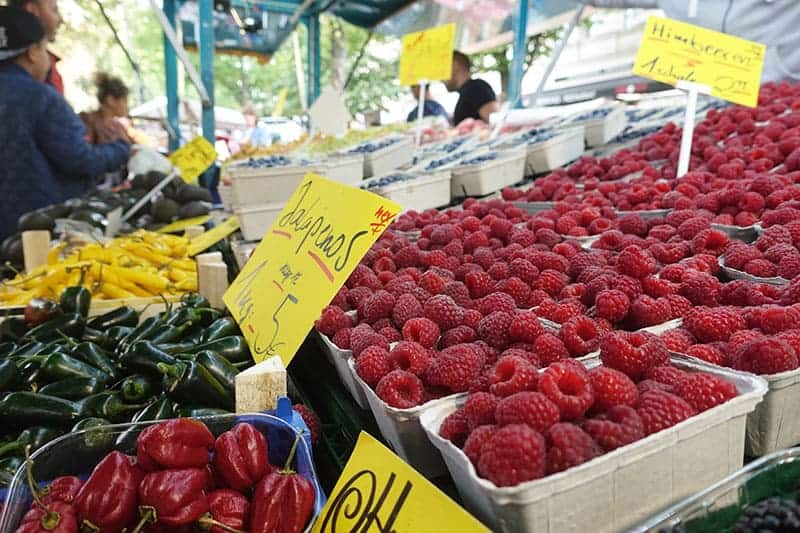
The advantages and disadvantages of regional purchasing just described already give an idea of the extent to which the decision for or against predominantly regional consumption can have an impact on the environment, society and one's own health.
By eating regional foods in the future, for example, you are counteracting the climate change because your diet will produce less CO2-emissions. Also the problem of Water shortage on earth is decreasing, since goods produced in dry regions such as Spain or South Africa do not require above-average irrigation. Also the problem of the World hunger is reduced because you only consume food that comes from your region. For example, there are no fish exports from countries in Southeast Asia, where many people live primarily on fish.
By giving preference to foods that are produced sustainably and regionally throughout their entire value chain, you also avoid the Deforestation. Like, for example, the Amazon rainforest in Brazil, which nowadays has to give way mainly for soy cultivation (mainly for animal feed) and for palm oil plantations.
As you can see, conscious regional consumption can ensure that the Environmental problems of our time to solve. And I haven't even described them all yet. Also air pollution and Soil erosion are among them, for example. In addition to the ecological aspect, we do not want to forget that regional products are healthier and taste better and that the economy in your living space is strengthened.
Fortunately, a clear trend is emerging in our society. More and more people in Germany want to know where their food comes from before they buy it.₁
Tips for regional shopping
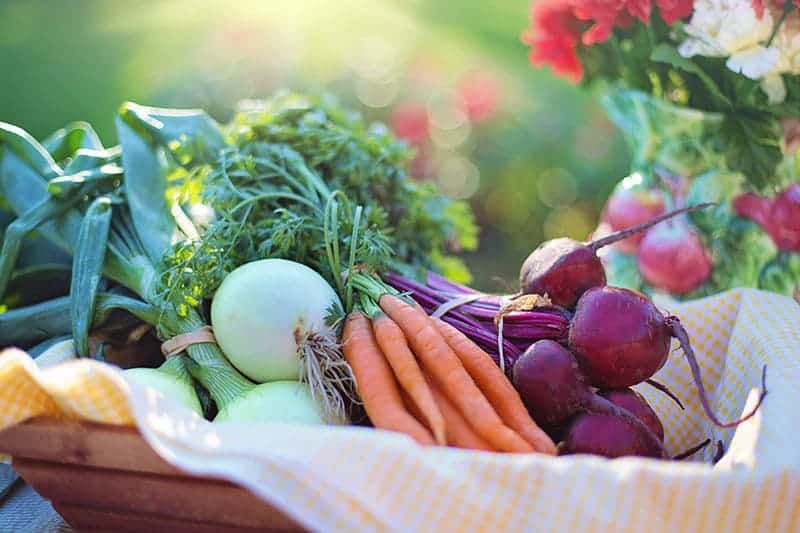
And how can each of us now buy regionally in everyday life as simply as possible and in the long term? Of course, everyone asks themselves this question after it is clear what benefits this shopping behavior brings with it. Here I have listed some tips for you.
Shopping at the weekly market
The beauty of weekly markets is that they exist in almost every city and also in many villages. Many regional vendors sell their food there - usually even unpackaged. So if you want to bring your own basket, backpack, or Fruit and vegetable bags with you, you can even still use your Zero Waste Lifestyle push. We simply go to the weekly market once a week to directly buy all the food for the meals we have planned for the next few days.
Tip: Keep in mind that there are, of course, many national suppliers there who also sell products that can't be regional in any place in Germany.
Solidarity Farming (SoLaWi)
In SoLaWi, a group of consumers always cooperates with a producer of food. If you belong to a group of solidarity agriculture, then you can influence the production and regularly receive healthy as well as regionally and ecologically produced food. In return, you pay the farmer the costs of production and, together with your group of consumers, give him a guarantee of purchase for his production.
Buy directly from the farmer
Of course, everyone also has the opportunity to get food directly from the producer. Of course, the mostly organically working farms are particularly pleased about this, as their own commitment can also be economically lucrative in this way. With a sustainable search engine you can simply look for a farm sale in your area and ask whether the farmer also regularly delivers the food to your home.
To make transport to your home even more sustainable, you can form a community with neighbors, for example, in which you order groceries once a week. This way, the trip is used in a much more environmentally friendly way.
Prefer food that grows in Germany
Avoid or reduce the consumption of foods that cannot be grown in Germany without energy-intensive facilities. Bananas, coffee, chocolate or avocados are never regional - unless you live in warmer climates - such as Brazil, Colombia or Indonesia.
Of course, this doesn't mean that you have to give up delicious chocolate forever and ever. But it is important to understand that it cannot be regional and to be more conscious of your own consumption.
Look for organic products
Products with the organic seal already give you an important indication of regionally produced goods. However, organic does not automatically mean that the food was produced regionally. Ideally, your shopping basket should contain goods that are produced both regionally and organically.
Shop regionally online
On the Internet you can for example Market gushers.com to buy regionally, fairly and ecologically produced food and to get to know the producers personally. Suppliers post their weekly offers there, and you can order online, pay, and pick them up at one of the local market hawkers. In this way, the producer sells regional products directly to the end consumer. In this way, you ultimately also support the businesses that produce their food ecologically and fairly in your area.
Use seal as a safeguard
The trend is toward regional foods. Of course, manufacturers and retailers have also recognized this. For their own profits, unprotected terms such as "from the region," "from here" or "local" are unjustifiably printed on food labels that have traveled hundreds or even thousands of kilometers. For a long-term regional purchase, you should simply keep this in mind and, for safety's sake, look for the trustworthy product seals.
A well-known seal for regionality is, for example, the Regional window. It provides information about the place of production and the origin of the agricultural ingredients used. Unfortunately, it only looks at the regionality aspect of a product - and not whether the production was organic. Nevertheless, it speeds up the duration of the search.
The sticker with the squirrel from BuyLocal.com on products or on the entrance doors of stores will show you not only grocery stores, but also clothing or book stores that offer regional goods.
Shopping regionally at the supermarket
Some of the supermarkets classic supermarkets - for example Tegut, Rewe and Edeka - deliberately advertise regional products. In fact, you can find them here more easily than in discounters like Aldi or Lidl.
Also in the supermarket you should again look at the Regionality seal pay attention. If a particular food product has several ingredients, it may be labeled as regional even though only part of the product was produced regionally. Here it is necessary to look more closely.
Notice: The plastic free shopping of regional products is achieved here by sharing unnecessary plastic packaging naturally somewhat more difficult. However, it is not impossible.
Shopping regionally? It's not difficult!
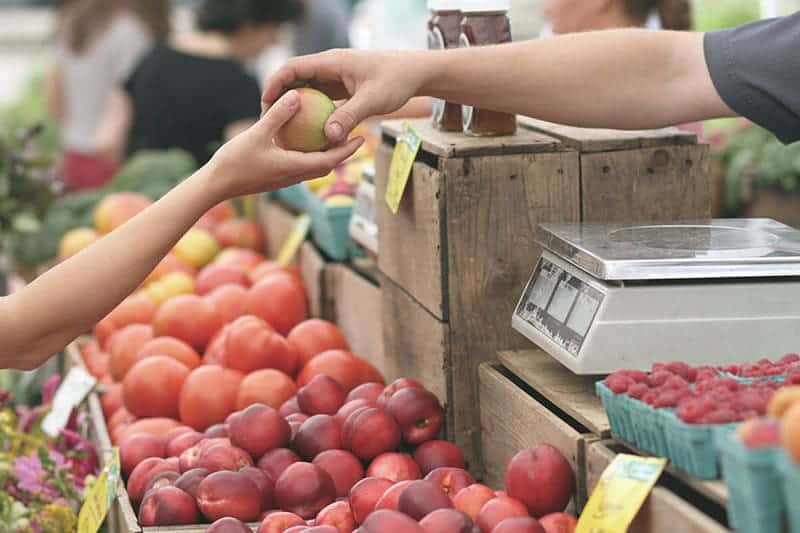
If you are considering regional purchasing for the first time, you might be a little worried about the amount of work involved. But in fact, it is only the conversion to regional consumption that involves some effort on your part. After the tips & tricks have been internalized, everything works almost by itself.
Do you have any questions, tips, or your own experiences with regional shopping that you'd like to share? Then feel free to leave me a comment below this post.
Stay sustainable,

PS.: It's not just regionality that increases the chances of truly sustainable food. Because if a large part of it ends up in the garbage can, that's far from being sustainable. Therefore, also read the article about the Reduction of food waste inspire you with tips & tricks.
References:
₁ YouGov Deutschland GmbH (2018): Food & Health 2018. https://yougov.de/loesungen/reports/studien/food-health. [02.09.2019].

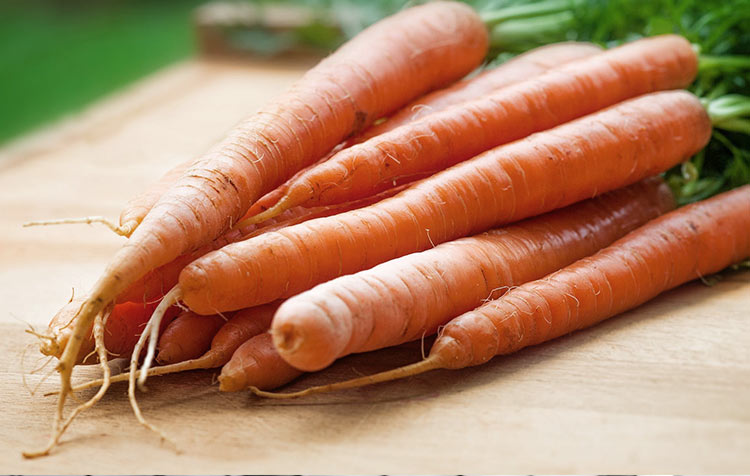




nice detailed article. At smaller markets you have the opportunity to meet the farmer and producer of trust from the region directly. But of course you can never be sure where some products come from.
Hello Christoph, do you already know naveso.de - the new search engine for regional products? Marcus and I have created the site in our spare time and are live since this summer. Maybe interesting for you and your readers? Many greetings Lothar
Hello Lothar! Thanks for the tip, look at your project closely.
Best regards
Christoph
Comments are closed.